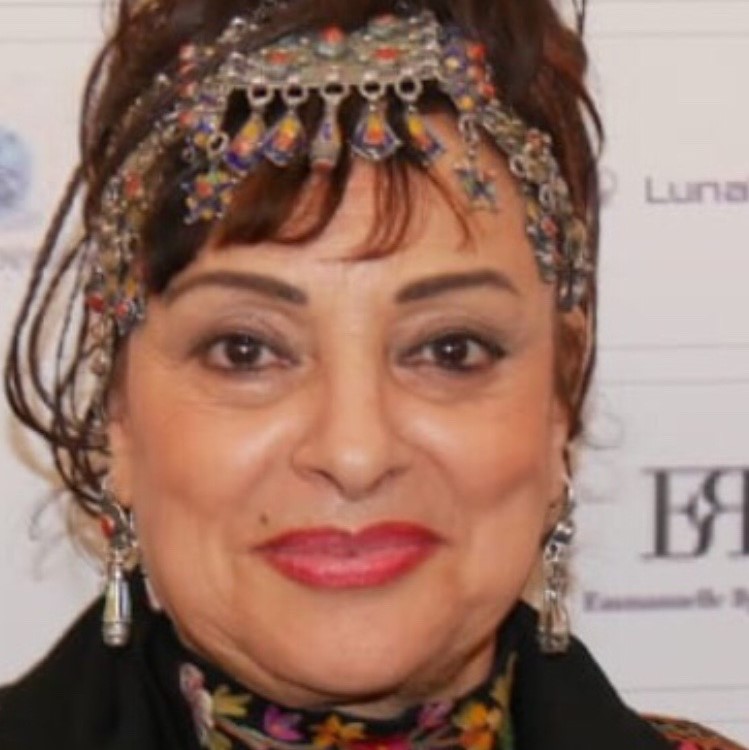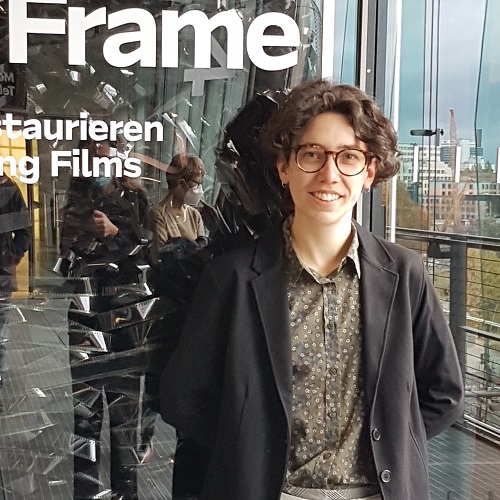EGY 1992 | Director: Ateyyat El Abnoudy | Camera: Emad Fareed | Editor: Mohammed El Sayyed | Line Producer: Abdul Hameed Ghoneim | Sound Recordings: Hassan Armin, Ahmed Abdel Raouf | Sound Mixing: Magdy Kamel | Production: Youssef Hassan, Abdul Rahman Mohsen, National Film Centre Egypt | Colour | DCP | 28 min | arab. OV with english SUB | Cimatheque Cairo
The importance of the Suez Canal in Egypt's national narrative can scarcely be overestimated. Atteyat El Abnoudy has repeatedly filmed in the area. The first ten minutes (of the film) report on the origins of the canal between the Mediterranean and the Red Sea, accompanied by numerous historic photographs. Emphasis is placed on the enormous sacrifice that simple people, farmers, contributed to the construction work. Their heroic accomplishment is counteracted in the early 90s by a new profiting class that begins to suppress the hereditary population in the region when the coast proves to be suitable for tourism. A fishing harbour suddenly finds itself sandwiched between hotel piers; rich people from Cairo begin to block the canal road so that no one comes too close to their villas.
"We have nobody to turn to," the people lament, "should we complain to President Bush?" Their reference to the chief patron of globalisation indicates an issue that plays a role in many other contexts: Egypt's colonial past and its role in geopolitical alliances deeply affect people's everyday lives. (Bert Rebhandl, Frankfurter Allgemeine Zeitung, 27 May 2021)

| Acronyms | |
|---|---|
| amer. | American English |
| b/w | Black and white |
| OV | Original version |
| SUB | Subtitles |
| +SUB | electronic live subtitling (below the image) |
| INT | Intertitles |
| Countries | |
|---|---|
| AT | Austria |
| FRG | Federal Republic of Germany (historic) |
| BLR | Belarus |
| DE | Germany |
| CAN | Canada |
| GDR | German Democratic Republic (historic) |
| EGY | Egypt |
| FR | France |
| GB | Great Britain |
| URY | Uruguay |
| BRA | Brasil |
| SWE | Sweden |
| UKR | Ukraine |
| PL | Poland |
| IDN | Indonesia |
| PRT | Portugal |
| HRV | Croatia |
| ECU | Ecuador |
| HUN | Hungary |
| AUS | Australia |
| IT | Italy |
| MEX | Mexico |
| IND | India |
FR 1975 | Director, Script, Camera, Editor, Production: Djouhra Abouda, Alain Bonnamy | Music: Djamel Allam | Colour | DCP of 35mm, restored version | 60 min | arab./french OV with english SUB | Talitha
“Every image was filmed to hit you like a fist”, (Djouhra Abouda, 1979) in this experimental, political and radical film about the experience of immigrant workers in France in the mid-1970s.
ALI AU PAYS DES MERVEILLES (engl.: Ali in Wonderland) by Abouda and Bonnamy calls out the exploitation and racism it unflinchingly ascribes to the French state, the media, capitalism and colonisation in a system of domination that grinds down of those subjected to it.
Shot in 16mm, the film combines a formal and aesthetic inventiveness with a powerful militant purpose, through the direct dialogue of marginalised people. “I have explored the everyday actions of migrant workers through a magnifying glass,” says Djouhra Abouda (Tahar Ben Jelloun, Djouhra et ‘ALI AU PAYS DES MERVEILLES’, Le Monde, 3 January 1977). It took a year of location scouting and research (she reels off a long list of racist crimes from around 1975), as well as painstakingly detailed cinematic effects (jerky shots, distortion, double exposure, time gaps, images in slow and fast motion). Images composed and set to music by Djamel Allam transport us from the realm of documentary to ballet (featuring refuse collection), musical comedy (highlighting weather, hardship and usury), and even fantasy (with superimposed faces on the gravestones of soldiers who died defending France between 1914 and 1918). The film also gives a voice to the forgotten ones: women, hitherto largely absent from films and documents about the struggles of migrant workers.
The film was forgotten and remained invisible, a victim of its non-conformity with the two opposing currents of the day: interventionist (or militant) and experimental cinema, whose contours it had crashed.
After this film, Abouda and Bonnamy abandoned cinema for other forms of expression. (Léa Morin, Il cinema ritrovato)

| Acronyms | |
|---|---|
| amer. | American English |
| b/w | Black and white |
| OV | Original version |
| SUB | Subtitles |
| +SUB | electronic live subtitling (below the image) |
| INT | Intertitles |
| Countries | |
|---|---|
| AT | Austria |
| FRG | Federal Republic of Germany (historic) |
| BLR | Belarus |
| DE | Germany |
| CAN | Canada |
| GDR | German Democratic Republic (historic) |
| EGY | Egypt |
| FR | France |
| GB | Great Britain |
| URY | Uruguay |
| BRA | Brasil |
| SWE | Sweden |
| UKR | Ukraine |
| PL | Poland |
| IDN | Indonesia |
| PRT | Portugal |
| HRV | Croatia |
| ECU | Ecuador |
| HUN | Hungary |
| AUS | Australia |
| IT | Italy |
| MEX | Mexico |
| IND | India |
Followed by a conversation with Djouhra Abouda Lacroix
Born in 1949 in Ifigha, Algeria, Djouhra Abouda Lacroix is known as a singer of Kabyle music under the stage name Djura. She came to France with her parents as a child. In Paris, she completed a degree in fine arts. Against her family's wishes, Abouda chose an artistic career that led her from theater to film and finally to music. She founded the music group DjurDjura in 1979. Abouda published two autobiographical books: Le voile du silence and La saison des narcisses. With Alain Bonnamy, Abouda made three films: Algérie Couleurs (1970-1972), Cinécité (1973-1974) and Ali au pays des merveilles (1976).

Louise Burkart (she/her) is a film restorer at the DFF - Deutsches Filminstitut & Filmmuseum. After graduating in film studies, she worked at the Murnau-Stiftung and at ARRI Media Restoration. During the past several years, she has curated film series on experimental or marginalised cinema in German-speaking countries and France and was also a co-founder of the Filmkollektiv Frankfurt. She worked for the Kinothek Asta Nielsen during seven years.







